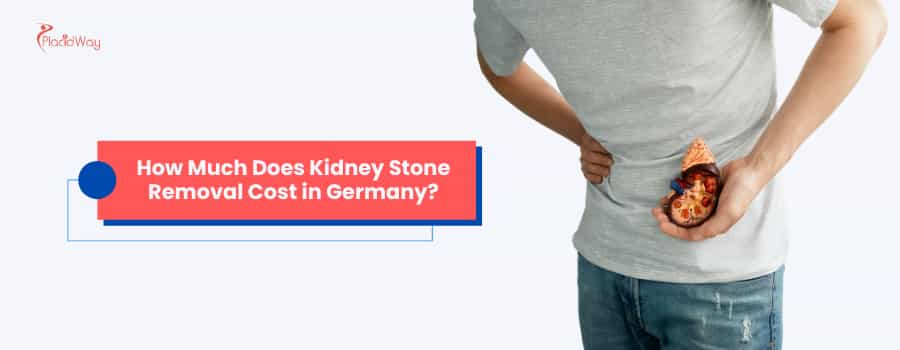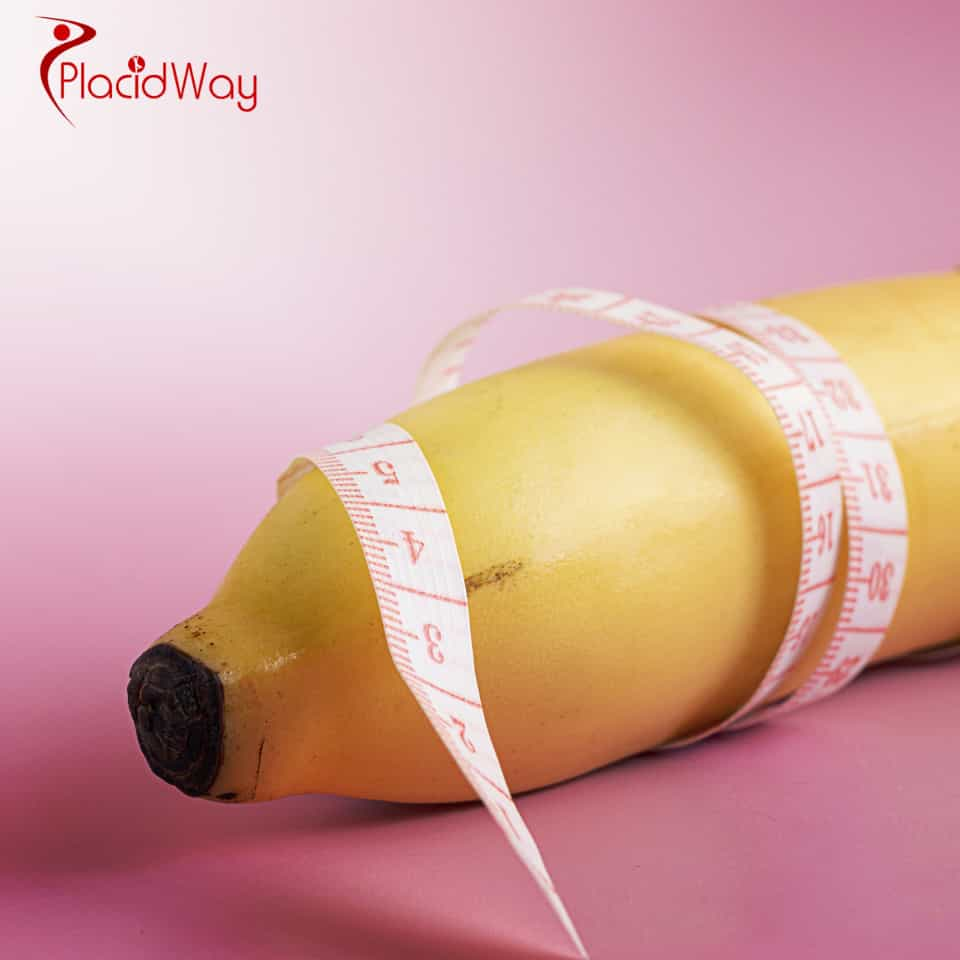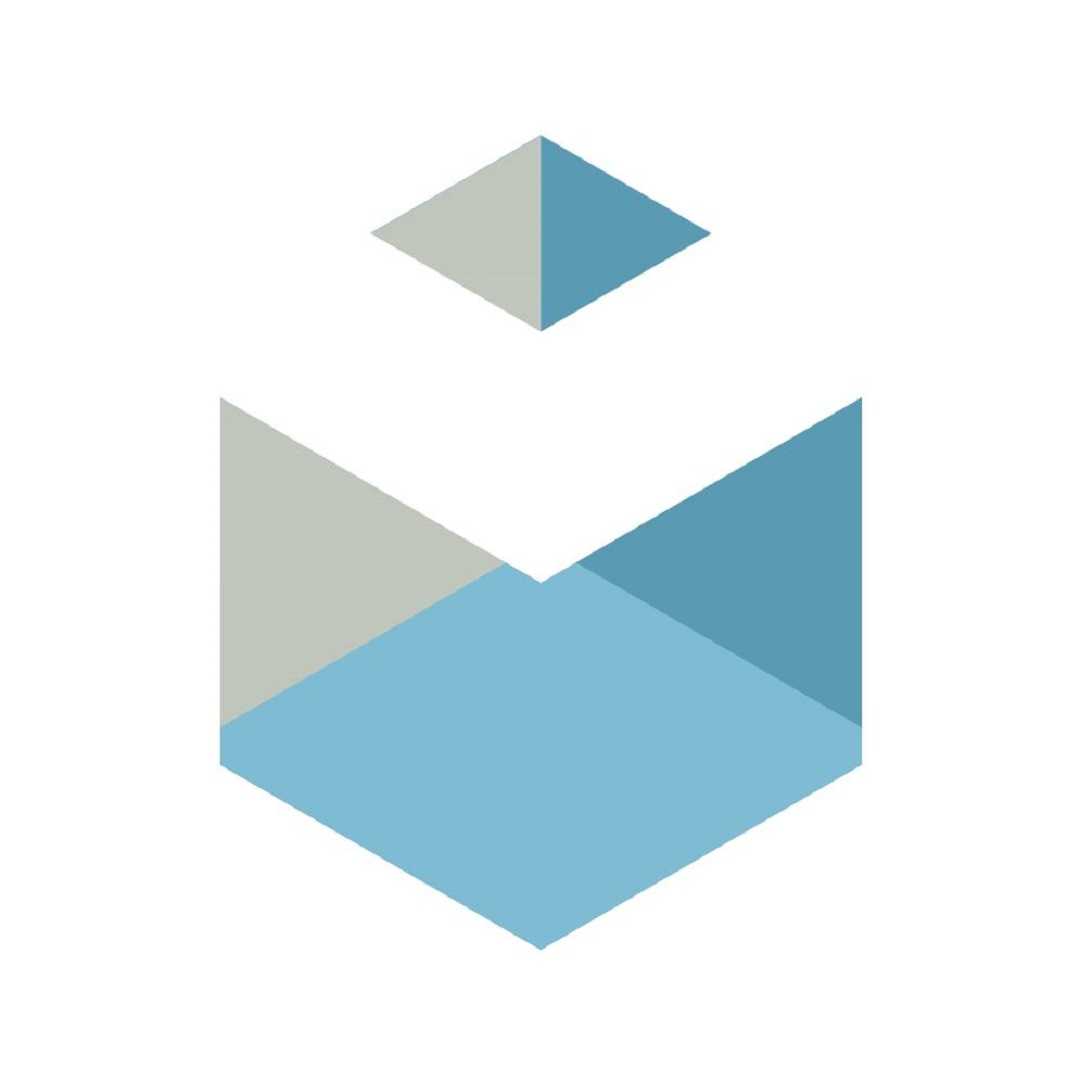A Guide to Kidney Stone Removal Cost in Germany
"The cost of kidney stone removal in Germany typically ranges from USD 5,400 to USD 6,600, though prices can vary significantly depending on the specific procedure, clinic, and complexity of the case."

Kidney stones can be incredibly painful and disruptive, requiring medical intervention for relief. Germany has long been a popular destination for medical tourism, offering advanced healthcare facilities and highly skilled medical professionals. For individuals considering kidney stone removal in Germany, understanding the associated costs and available procedures is crucial.
This blog post aims to provide a comprehensive overview of the different methods for kidney stone removal and their approximate costs in Germany, answering common questions people search for on various platforms. We'll delve into the details of each procedure, helping you make an informed decision about your healthcare options.
What factors influence the cost of kidney stone removal in Germany?
"The cost of kidney stone removal in Germany is influenced by several factors, including the type of procedure, the size and location of the stone, the hospital's reputation, the surgeon's fees, anesthesia costs, duration of hospital stay, and any additional diagnostic tests or post-operative care required."
The overall price tag for kidney stone removal is not a fixed sum. It's a dynamic figure that changes based on a combination of elements. Firstly, the specific method chosen for stone removal plays a significant role. Minimally invasive procedures often have different cost structures than more complex surgical interventions. Secondly, the characteristics of the kidney stone itself – its size, composition, and exact location within the urinary tract – can impact the complexity of the procedure and, consequently, the cost. Larger or more deeply embedded stones may require more specialized techniques or longer operating times.
Beyond the medical specifics, the choice of hospital or clinic also matters. Renowned university hospitals or private clinics might have higher fees compared to smaller, regional facilities, reflecting their advanced technology, amenities, and specialized staff. The individual fees of the surgeon and anesthesiologist, along with the length of your hospital stay and any necessary pre-operative diagnostics (like CT scans or ultrasounds) and post-operative follow-up appointments, all contribute to the final bill.
What is Extracorporeal Shock Wave Lithotripsy (ESWL) and how much does it cost in Germany?
"Extracorporeal Shock Wave Lithotripsy (ESWL) is a non-invasive procedure that uses high-energy sound waves to break kidney stones into smaller fragments, allowing them to pass naturally. In Germany, ESWL typically costs between USD 5,400 and USD 6,600."
ESWL is often the first-line treatment for smaller kidney stones (usually less than 2 cm) that are located in the kidney or upper ureter. The procedure involves positioning the patient on a special table, and a machine called a lithotripter delivers shock waves through the body to target the stone. These shock waves generate pressure that causes the stone to fragment into tiny pieces, which are then passed in the urine over the following days or weeks. This method is popular due to its non-invasive nature, meaning no incisions or internal instruments are required, leading to a quicker recovery time for most patients.
While generally effective, some patients may require multiple ESWL sessions to completely clear the stone. The cost in Germany usually covers the procedure itself, anesthesia, and a short observation period. However, it's important to clarify with the clinic whether follow-up consultations or additional ESWL sessions are included in the initial quote.
What is Ureteroscopy (URS) and its cost for kidney stone removal in Germany?
"Ureteroscopy (URS) involves inserting a thin, flexible tube (ureteroscope) through the urethra and bladder into the ureter to visualize and remove or fragment kidney stones. While specific prices for URS in Germany are not consistently published, the overall cost for kidney stone removal ranges from USD 5,400 to USD 6,600, with URS falling within this general bracket, often influenced by the use of laser lithotripsy."
Ureteroscopy is a minimally invasive procedure commonly used for stones located in the ureter, or for kidney stones that are not suitable for ESWL. During URS, the ureteroscope is carefully guided to the stone. Once the stone is located, a small basket can be used to retrieve it if it's small enough. For larger stones, a laser (often a holmium laser) is used through the ureteroscope to break the stone into smaller pieces, which can then be passed naturally or removed. This technique offers direct visualization of the stone and precise fragmentation.
URS typically requires general anesthesia. Patients usually go home the same day or stay overnight. The cost can vary based on the complexity of the stone, the need for laser lithotripsy, and the length of the procedure. Germany's advanced medical technology means that clinics are well-equipped to perform sophisticated URS procedures.
What is Percutaneous Nephrolithotomy (PCNL) and how much does it cost in Germany?
"Percutaneous Nephrolithotomy (PCNL) is a surgical procedure for large or complex kidney stones, where a small incision is made in the back to access the kidney directly and remove the stone. The cost of PCNL in Germany generally falls within the broader kidney stone removal cost range of USD 5,400 to USD 6,600, though complex cases may incur higher fees."
PCNL is reserved for larger kidney stones (typically greater than 2 cm), stones that haven't responded to ESWL or URS, or those with unusual shapes. In this procedure, a small incision (about 1 cm) is made in the patient's back, and a nephroscope (a specialized endoscope) is inserted directly into the kidney. The surgeon can then visualize the stone, break it into smaller pieces using various tools (like ultrasonic or electrohydraulic probes), and remove the fragments. PCNL is highly effective for complete stone clearance, especially for large burdens.
Due to its more invasive nature compared to ESWL or URS, PCNL typically requires a longer hospital stay, often a few days. The cost reflects the surgical expertise, the use of specialized instruments, and the post-operative care involved. German hospitals are well-regarded for their surgical precision and post-operative support, which contributes to successful outcomes for PCNL.
What is Retrograde Intrarenal Surgery (RIRS) and what are its costs in Germany?
"Retrograde Intrarenal Surgery (RIRS) is a minimally invasive endoscopic procedure where a flexible ureteroscope is guided into the kidney to treat stones using a laser. While direct cost figures for RIRS in Germany are less common, it generally falls within the overall kidney stone removal cost range and is considered a specialized procedure, potentially costing more than basic ESWL."
RIRS is a highly advanced technique that utilizes a flexible ureteroscope capable of navigating the complex anatomy within the kidney. This allows the surgeon to reach stones located in challenging areas that might be inaccessible with rigid scopes. Once the stone is located, a laser fiber (most commonly holmium laser) is used to break the stone into very fine dust or small fragments that can be passed naturally. RIRS is particularly beneficial for medium-sized kidney stones, multiple stones, or stones that are difficult to access through other means.
The sophistication of the flexible ureteroscope and the precision required for RIRS contribute to its cost. Patients undergoing RIRS typically receive general anesthesia and may go home the same day or stay overnight. German urology departments are often equipped with the latest RIRS technology and highly experienced surgeons, offering excellent outcomes for this procedure.
Are there any hidden costs associated with kidney stone removal in Germany?
"While initial quotes for kidney stone removal in Germany are often comprehensive, potential hidden costs can include pre-operative diagnostic tests not covered, extended hospital stays due to complications, additional medications, follow-up consultations, and physical therapy if needed for recovery."
It's crucial for patients to ask for a detailed breakdown of all anticipated costs before undergoing treatment. While many clinics provide package prices, these might not always cover every single aspect. For example, the initial consultation and necessary diagnostic imaging (like a CT scan or ultrasound) before the procedure may be billed separately. If there are unforeseen complications during or after the surgery, leading to a longer hospital stay or requiring additional interventions, these extra days and treatments will add to the total cost.
Medications prescribed for pain management or to prevent infection post-procedure, as well as any necessary follow-up appointments with the urologist to monitor recovery and stone passage, might also be additional expenses. Always clarify what is included in the quoted price and what might incur extra charges to avoid surprises.
How does the cost of kidney stone removal in Germany compare to other countries?
"The cost of kidney stone removal in Germany is generally higher than in countries like India or Turkey but often more affordable than in the United States or the United Kingdom, offering a balance of high-quality care and competitive pricing within Europe."
Germany's healthcare system is renowned for its high standards, advanced technology, and skilled medical professionals. This quality often comes with a higher price tag compared to some emerging medical tourism destinations. For example, similar procedures in India or Turkey might be significantly cheaper. However, compared to countries like the United States, where healthcare costs can be exceptionally high, Germany often presents a more cost-effective option for international patients seeking premium care.
Patients considering Germany for kidney stone removal often find that the combination of excellent medical outcomes, stringent safety standards, and transparent pricing makes it an attractive choice, even if the initial cost seems higher than in some budget-friendly destinations.
What is the typical recovery time after kidney stone removal in Germany?
"The typical recovery time after kidney stone removal in Germany varies based on the procedure: ESWL often allows for a quick return to normal activities within a few days, URS within a week, and PCNL or more complex procedures may require a few weeks for full recovery."
Recovery depends heavily on the invasiveness of the procedure. For ESWL, many patients can resume light activities within a day or two, though it may take several days or weeks for all stone fragments to pass. During this time, patients might experience some discomfort or blood in the urine.
With Ureteroscopy (URS), most individuals can return to their normal routine within a week. Some might experience mild pain or a need to urinate more frequently, especially if a stent was placed temporarily. If a stent is used, its removal is a quick, minor procedure.
For more invasive procedures like Percutaneous Nephrolithotomy (PCNL), recovery can take a few weeks. Patients will typically have a catheter for a short period and will need to avoid strenuous activities for a longer duration. The medical team in Germany will provide detailed post-operative instructions to ensure a smooth and safe recovery process.
What should I expect during my consultation for kidney stone removal in Germany?
"During your consultation for kidney stone removal in Germany, you should expect a thorough medical history review, physical examination, imaging tests (like ultrasound or CT scan), blood and urine tests, and a detailed discussion about your stone characteristics, treatment options, potential risks, and estimated costs."
The initial consultation is a vital step in your treatment journey. The German urologist will meticulously review your medical history, including any previous kidney stone episodes, existing health conditions, and medications. A physical examination will be performed, and you'll likely undergo various diagnostic tests. These usually include imaging studies to precisely locate and characterize the kidney stone(s), as well as blood and urine tests to assess kidney function and identify any underlying causes of stone formation.
Based on these findings, the specialist will discuss the most appropriate treatment options for your specific case, explaining the pros and cons of each procedure (ESWL, URS, PCNL, RIRS, etc.). They will also detail potential risks and complications, anticipated recovery times, and provide a clear breakdown of the estimated costs. This consultation is an opportunity to ask any questions you have and gain a comprehensive understanding of your treatment plan.
Are German hospitals equipped with advanced technology for kidney stone removal?
"Yes, German hospitals are highly equipped with advanced technology for kidney stone removal, including state-of-the-art lithotripters for ESWL, flexible ureteroscopes and high-power lasers for URS and RIRS, and advanced imaging systems for precise PCNL."
Germany is at the forefront of medical innovation, and its hospitals consistently invest in the latest technologies to provide optimal patient care. For kidney stone removal, this means access to cutting-edge equipment for all types of procedures. They utilize modern ESWL machines that deliver precise shock waves for effective stone fragmentation. For endoscopic procedures like URS and RIRS, German clinics employ highly flexible ureteroscopes with excellent visualization capabilities and powerful holmium lasers that can efficiently break down stones of various compositions and sizes.
Furthermore, German facilities use advanced imaging technologies, such as high-resolution CT scans and real-time ultrasound, to guide procedures like PCNL, ensuring accuracy and minimizing invasiveness. This commitment to advanced technology contributes significantly to the high success rates and safety profiles of kidney stone removal treatments in Germany.
What qualifications should I look for in a urologist for kidney stone removal in Germany?
"When seeking a urologist for kidney stone removal in Germany, look for certifications from the European Board of Urology (EBU), extensive experience in treating urinary stone disease, specialization in minimally invasive techniques, positive patient reviews, and affiliation with reputable hospitals or university medical centers."
Germany has a rigorous medical education and certification system, ensuring high standards of expertise. When choosing a urologist, it's advisable to look for physicians who are board-certified, particularly by the European Board of Urology (EBU), which signifies a high level of training and competence. Experience is paramount, so inquire about their track record in performing kidney stone removal procedures, especially the specific technique recommended for your case.
Many leading urologists in Germany specialize in minimally invasive approaches, which often lead to better patient outcomes and quicker recovery. Online patient reviews and testimonials can provide valuable insights into a doctor's patient care and success rates. Finally, choosing a urologist affiliated with a well-known hospital or university medical center in Germany can offer additional assurance of quality, as these institutions often have access to the latest technology and a multidisciplinary team of experts.
What are the potential risks and complications of kidney stone removal?
"The potential risks and complications of kidney stone removal include infection, bleeding, damage to surrounding organs (though rare), residual stone fragments, and the possibility of needing additional procedures. While serious complications are uncommon, they can occur, and your doctor will discuss these thoroughly."
While kidney stone removal procedures are generally safe and effective, like any medical intervention, they carry certain risks. Infection, though typically managed with antibiotics, can sometimes occur, especially after endoscopic procedures. Minor bleeding is common, but significant bleeding requiring a transfusion is rare. In very rare instances, there could be damage to the ureter, kidney, or surrounding organs, which might necessitate further intervention.
Sometimes, despite the procedure, small stone fragments might remain in the urinary tract, potentially requiring follow-up treatments. There's also the possibility that the initial procedure may not fully clear the stone, leading to the need for a second procedure. Your urologist in Germany will discuss all these potential risks and complications in detail during your consultation, ensuring you are fully informed and can make a decision with confidence.
Does health insurance cover kidney stone removal in Germany for international patients?
"For international patients, health insurance coverage for kidney stone removal in Germany typically depends on the type of insurance plan. Private international health insurance often covers such procedures, but it's crucial to verify coverage details directly with your insurance provider prior to treatment, as public German insurance generally does not cover non-residents."
If you are an international patient seeking kidney stone removal in Germany, your existing health insurance coverage is a critical factor. Most standard travel insurance policies do not cover planned medical treatments. However, many international private health insurance plans do offer coverage for medical procedures abroad. It is essential to contact your insurance provider well in advance to understand the specifics of your policy, including what procedures are covered, the extent of coverage, any deductibles or co-payments, and the pre-authorization process.
For non-EU citizens, German public health insurance generally does not cover treatment for medical tourists. Therefore, securing adequate private international health insurance or being prepared to cover the costs out-of-pocket is necessary. Many German clinics also offer assistance with insurance claims or direct billing for approved international insurance providers.
How long does a kidney stone removal procedure typically last?
"The duration of a kidney stone removal procedure in Germany varies by method: ESWL sessions usually last 30-60 minutes, Ureteroscopy (URS) typically takes 30-90 minutes, and Percutaneous Nephrolithotomy (PCNL) or RIRS can last anywhere from 1 to 3 hours, depending on stone complexity."
The length of the procedure is directly related to the technique used and the characteristics of the kidney stone. ESWL is relatively quick, often completed within an hour as it's an external procedure. Ureteroscopy (URS), being minimally invasive, usually takes between 30 to 90 minutes. This can be influenced by the stone's size, location, and how easily it fragments.
For more involved procedures like Percutaneous Nephrolithotomy (PCNL) or Retrograde Intrarenal Surgery (RIRS), the duration can extend from one to three hours. This longer time accounts for the meticulous surgical steps, the fragmentation and removal of larger stones, and the precise navigation required. Your urologist will provide a more accurate time estimate during your consultation based on your individual case.
What post-procedure care is typically provided after kidney stone removal in Germany?
"Post-procedure care after kidney stone removal in Germany typically includes pain management, monitoring for complications, instructions for hydration and activity restrictions, and often follow-up appointments to ensure complete stone clearance and address any residual symptoms."
After your kidney stone removal, the medical team in Germany will prioritize your comfort and monitor your recovery closely. Pain medication will be administered to manage any discomfort. Nurses will regularly check your vital signs and monitor for any signs of complications, such as excessive bleeding or infection. Depending on the procedure, you might have a stent placed temporarily to facilitate urine flow and prevent swelling, which will be removed at a later date.
Before discharge, you will receive detailed instructions on managing your recovery at home. This usually includes advice on staying well-hydrated to help pass any remaining fragments, dietary recommendations, activity restrictions, and signs to watch out for that might indicate a complication. Follow-up appointments with your urologist will be scheduled to assess your recovery, confirm complete stone clearance through imaging, and discuss strategies to prevent future stone formation.
Is Germany a good choice for medical tourism for kidney stone removal?
"Yes, Germany is an excellent choice for medical tourism for kidney stone removal due to its world-class healthcare system, highly skilled urologists, access to advanced medical technology, stringent quality standards, and often more competitive pricing compared to some Western countries."
Germany has established itself as a leading destination for medical tourism, attracting patients from around the globe. Its reputation for medical excellence is well-deserved, with hospitals adhering to rigorous quality and safety standards. Patients seeking kidney stone removal in Germany can benefit from the expertise of highly trained urologists who are adept in all modern stone management techniques, from non-invasive ESWL to complex surgical interventions like PCNL and advanced RIRS.
The country's healthcare infrastructure boasts state-of-the-art diagnostic and treatment facilities, ensuring that patients receive the most effective and efficient care available. While costs may be higher than in some developing nations, Germany offers a compelling balance of high-quality outcomes, patient safety, and transparent pricing, making it a reliable and desirable option for international patients. The focus on patient-centered care and thorough follow-up also contributes to a positive overall experience.
We encourage you to explore PlacidWay for solutions related to medical tourism, healthcare services, or other relevant offerings.


.png)




.png)

.png)






Share this listing